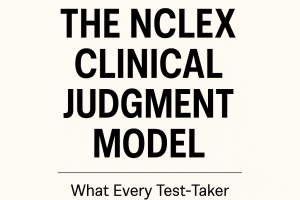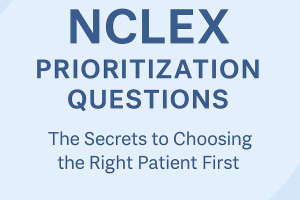MUST-KNOW ANTIBIOTICS AND THEIR NURSING IMPLICATIONS

Antibiotics are essential medications in the fight against bacterial infections. As a nurse, understanding the key antibiotics, their uses, side effects, and nursing implications is crucial to ensuring safe and effective patient care. This blog will cover some of the most commonly used antibiotics, providing a solid foundation for nurses to better manage patients under antibiotic therapy.
1. Penicillin
Penicillin is one of the earliest antibiotics discovered and is still widely used today. It is effective against a variety of bacterial infections, including streptococcal, pneumococcal, and meningococcal infections.
Nursing Implications:
– Monitor for allergic reactions, as penicillin allergies are common. Signs of an allergic reaction can include rash, itching, difficulty breathing, and anaphylaxis.
– Educate patients on the importance of completing the full course of antibiotics to avoid the development of resistant strains.
– Administer on an empty stomach for better absorption, unless the patient experiences gastrointestinal discomfort.
2. Cephalosporins
Cephalosporins are a large class of antibiotics that are structurally and functionally similar to penicillin. They are often used for patients with mild penicillin allergies and are effective against a wide range of bacterial infections, including respiratory and urinary tract infections.
Nursing Implications:
– Assess for cross-sensitivity in patients with a history of penicillin allergy, as some individuals may also be allergic to cephalosporins.
– Monitor for side effects like gastrointestinal disturbances, including nausea, vomiting, and diarrhea.
– Encourage patients to take cephalosporins with food to reduce gastrointestinal upset.
3. Macrolides
Macrolides, such as azithromycin and erythromycin, are commonly used to treat respiratory tract infections, skin infections, and sexually transmitted infections. They are often prescribed to patients who have allergies to penicillin or cephalosporins.
Nursing Implications:
– Monitor for gastrointestinal side effects, which are common with macrolides, especially nausea and diarrhea.
– Educate patients on the potential for drug interactions, as macrolides can interfere with other medications like warfarin and statins.
– Assess liver function, as macrolides can cause hepatotoxicity, particularly in patients with pre-existing liver conditions.
4. Fluoroquinolones
Fluoroquinolones, such as ciprofloxacin and levofloxacin, are broad-spectrum antibiotics used to treat urinary tract infections, respiratory infections, and skin infections.
Nursing Implications:
– Warn patients about the potential for tendon damage, especially in older adults. Patients should avoid strenuous physical activity while on these antibiotics.
– Educate patients to avoid taking fluoroquinolones with dairy products or antacids, as they can interfere with the absorption of the medication.
– Monitor for signs of peripheral neuropathy, which can occur with fluoroquinolone use.
5. Tetracyclines
Tetracyclines, including doxycycline and minocycline, are used for a variety of infections, such as acne, respiratory infections, and Lyme disease. They are effective against a broad spectrum of bacteria.
Nursing Implications:
– Advise patients to avoid direct sunlight or use sunscreen, as tetracyclines can increase the risk of photosensitivity.
– Educate patients to avoid taking tetracyclines with dairy products, iron supplements, or antacids, as these can reduce the medication’s effectiveness.
– Do not administer tetracyclines to pregnant women or children under 8 years old due to the risk of tooth discoloration and impaired bone growth.
6. Aminoglycosides
Aminoglycosides, such as gentamicin and tobramycin, are potent antibiotics used primarily for severe bacterial infections, including those caused by Gram-negative bacteria.
Nursing Implications:
– Monitor renal function closely, as aminoglycosides can cause nephrotoxicity, especially in older adults or those with pre-existing kidney conditions.
– Assess hearing, as aminoglycosides can also cause ototoxicity, leading to hearing loss or balance issues.
– Administer aminoglycosides intravenously, as they are poorly absorbed in the gastrointestinal tract.
NCLEX-Style Questions:
1. A patient receiving gentamicin for a severe infection is experiencing difficulty hearing. What should the nurse’s priority intervention be?
A. Continue the medication but at a lower dose
B. Notify the healthcare provider immediately
C. Administer the medication with food to decrease side effects
D. Reassure the patient that this is a normal side effect
Answer: B. Notify the healthcare provider immediately. Gentamicin can cause ototoxicity, which may lead to permanent hearing loss if not addressed promptly.
2. A nurse is caring for a patient prescribed ciprofloxacin. Which instruction is most important to include in the patient’s education?
A. Take the medication with dairy products to improve absorption
B. Avoid direct sunlight and wear sunscreen when outdoors
C. Skip the dose if gastrointestinal discomfort occurs
D. Discontinue the medication if symptoms resolve within 48 hours
Answer: B. Avoid direct sunlight and wear sunscreen when outdoors. Ciprofloxacin can cause photosensitivity, increasing the risk of sunburn.
3. A patient with a known penicillin allergy is prescribed ceftriaxone. What is the nurse’s priority action?
A. Administer the medication as prescribed
B. Monitor for signs of an allergic reaction
C. Inform the healthcare provider to change the prescription
D. Educate the patient to take the medication with food
Answer: B. Monitor for signs of an allergic reaction. Although ceftriaxone is a cephalosporin, there can be cross-reactivity in patients with penicillin allergies.
Conclusion
Antibiotics play a critical role in patient care, but understanding their uses, side effects, and nursing implications is vital for safe and effective treatment. Nurses must be diligent in educating patients, monitoring for adverse reactions, and ensuring that medications are administered correctly. By mastering these essential antibiotics and their implications, nurses can provide high-quality care and enhance patient outcomes.






